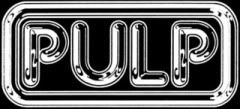Prodi Edges Closer to Victory in Italian Elections
Sign In to E-Mail This Print Save By IAN FISHER
Published: April 11, 2006
ROME, April 11 After a long night of uncertainty, Romano Prodi appeared today to have won the Italian elections, though supporters of Prime Minister Silvio Berlusconi said the whisker-thin margin demanded a recount.
Chris Helgren/Reuters
Italian center-left challenger, Romano Prodi, at a rally in Rome on Monday night.
Mr. Berlusconi, 69, who waged a bitter battle to maintain power, did not concede defeat, nor even appear on television. "Such a tiny difference necessitates a scrupulous checking of the counting," his spokesman, Paolo Buonauiti, told reporters early this morning.
But the nation's president, Carlo Azeglio Ciampi, sent a message that he would like these bitterly contested elections whose results were unclear throughout the night over and certain. He issued a statement saying that the voting was "orderly and correct."
After late results gave Mr. Prodi four of the six seats in the Senate whose fate had been unclear, he appeared in central Rome early this afternoon to claim a victory in both houses of Parliament. If the results are uncontested, Mr. Prodi, a 66-year-old economist and former prime minister, could form a government, though with a thin margin that could make governing difficult.
"The situation is complex and difficult," he told reporters. "And now we will work for our program together with the coalition and together with all Italians, including those who did not vote for us."
He rejected the idea - trumpeted in huge post-election headlines - that Italy was now a country divided, having voted for center-left and center-right in almost equal numbers.
"We are not a country split in two," he said. "Rather there is a little difference in the votes, and then there is the image of a country that is split because we campaigned without acknowledging each other.
"In any case, Italy's democracy is a mature democracy," he said.
The near final results showed that Mr. Prodi and his allies won 158 votes to 156 for Mr. Berlusconi's center-right coalition in the Senate. In the lower chamber of Parliament, the margin in votes was tight: 49.8 percent of the votes for Mr. Prodi, and 49.7 percent for Mr. Berlusconi.
By Italian elections law, changed last year by Mr. Berlusconi's government, the winner in the lower chamber automatically receives 340 of 630 seats, with 277 going to the runners' up.
With emotions running high, Italians flooded to the polls in two days of voting Sunday and Monday: Of the 47 million voters inside Italy, 83.6 percent went to the polls, compared to 81.4 in 2001, the year that Mr. Berlusconi won.
During the campaign — a particularly ugly one by Italian standards — polls consistently showed Mr. Berlusconi as much as five points behind. And the main question on Monday afternoon, after the polls closed, was whether the election marked the end of the Berlusconi era.
Rising from humble beginnings in Milan, Mr. Berlusconi built his fortune, then convinced Italy that he could duplicate that success for the nation. But after his five years in office, many Italians, frustrated by the skimpy economic growth, said he had not met his promises.
Many were also upset by unending allegations of corruption, conflicts of interest and a series of gaffes, like comparing himself to Christ, and a European legislator to a Nazi guard.
The first voter surveys on Monday seemed to show that his reign was over: Two polls showed Mr. Prodi's coalition taking both houses with margins of 5 percent, and center-left leaders walked right to the edge of jubilation.
"It's the end of the season for the culture of Berlusconi's anti-politics," said Massimo D'Alema, a former prime minister and a leader of an opposition party, Democrats of the Left.
But as actual results began flowing in from Italy's 20 regions, it became clear that Mr. Berlusconi had come from behind to put the issue in doubt.
"It's like Formula One racing," said Mario Pescante, a member of the lower house for Mr. Berlusconi's Forza Italia party. "They went for a pit stop, and we made up three minutes in the race."
fonte
http://www.nytimes.com









